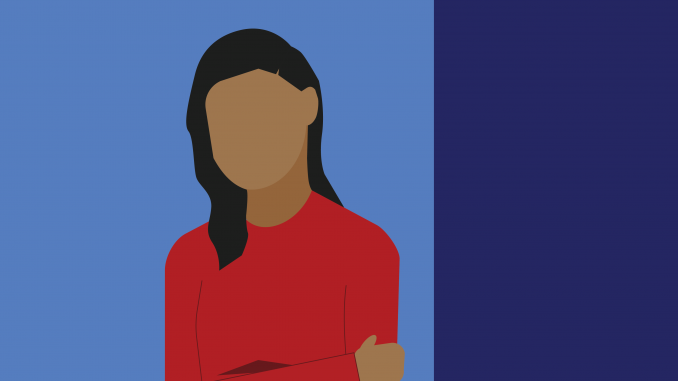
Content warning: This article discusses topics around sexual assault that may be triggering for some readers.
As stay-at-home orders were enacted, calls reporting domestic abuse began to drop, an unsettling statistic for employees at Domestic Abuse Project of Delaware County, said executive director Julie Avalos.
“This is of great concern to us as an organization, because it means victims are locked in their homes with their perpetrator without the ability to find a safe space to make a call to the hotline,” Avalos said.
As the City of Philadelphia ordered residents to stay at home during the COVID-19 pandemic, many individuals suffering from domestic abuse are at home with people who may pose harm to them, said Ben Daniels, the clinical director of Equilibria Psychological and Consultation Services near Queen Village.
“They have limited access to video sessions with their therapists, potentially,” Daniels said. “They might be able to achieve privacy in their home that you or I might be able to. And the other resources they are relying on, like family members, daycare or schools, religious organizations, community organizations, they might not have access to these anymore.”
The Centers for Disease Control and Prevention define domestic violence or intimate partner violence, as “physical violence, sexual violence, stalking and psychological aggression, including coercive tactics, by a current or former intimate partner.” This encompasses child abuse, intimate partner abuse, and elder abuse, according to a 2019 report by the National Center for Biotechnology Information.
One in four women and one in nine men in the United States are victims of domestic violence, according to the same study.
Teresa White-Walston, the director of education and training at Women Organized Against Rape Philadelphia Center Against Sexual Violence on John F. Kennedy Boulevard near 16th Street, works with staff to educate victims on prevention, initiatives, and training.
“If you are in a location where you’re being abused and or you’re cohabiting with an abuser, your capacity to get out to a place of safety is definitely hindered,” White-Waltson said. “So, you somehow now have to have a strategy to try to stay in shelter with someone who potentially is putting you at risk.”
Kristen Faith, founder and CEO of Break The Silence Against Domestic Violence, a national nonprofit organization, is not only a supporter of domestic violence victims but also a survivor. She began her organization 11 days after leaving an abusive relationship.
“The isolation has increased which has pushed survivors even deeper into silence,” Faith said. “Some shelters are not accepting new families because of the fear of coronavirus as well,”
As BTSADV and the DAP adjust to offer remote support for their victims and survivors, there’s been a concerning decrease in reports of domestic violence, said Nicole Ramspacher, a counselor and hotline coordinator for DAP.
DAP’s 24/7 crisis hotline has experienced a 45 percent decrease in calls, said Avalos.
“While it’s hard to say for sure exactly what the cause is, it is likely that for those needing support it may not be safe for them to call in and talk with an advocate,” Ramspacher said. “Many times the risk of being discovered calling the hotline by the abuser may increase the likelihood of violence.”
There has also been a decrease in demand for shelter space, said Joy Cason, the safe house manager at DAP. Cason worries that “with the current shelter-in-place order, victims have fewer opportunities to reach out to agencies like ours.”
For WOAR, calls have remained at a steady rate, White-Walston said.
“I do know calls are coming in, but I’m going to be very honest and say, I doubt very seriously if a survivor would call if you’re at home with an abuser,” White-Walston added.
For survivors of domestic abuse, there are multiple services available for support during the COVID-19 pandemic, whether they are offered over the phone or through online video sessions, Avalos said.
DAP moved residents from its standard shelter facility to a “hotel model of service to avoid communal living,” including all services offered remotely and twice a week resource drop off, Cason said.
DAP’s 24/7 hotline is also still up and running, Ramspacher added.
BTSADV, though having had to postpone several programs and fundraisers due to shutdowns, is still offering online programs, virtual retreats, networking opportunities and support to victims and survivors, Faith said.
WOAR continues to offer their resources online, as well as their text to chat service, White-Waltson said.
Ramspacher urged survivors to continue to reach out for support and create an escape plan if violence begins to escalate.
“I really want to encourage anyone who is stuck or fearful during this time to connect with any friends or family members that they have for support or for a place to stay outside of the abusive home,” Ramspacher said. “If someone does not have the support network to leave their situation, I would encourage them to think of a safety plan so that if they need to flee in a hurry they have important items with them.”
Organizations working to fight domestic violence, like BTSADV, DAP and WOAR, encourage victims to remember that the abuse is not their fault.
“The biggest message that I like to share with survivors is ‘they are not alone,’” Faith said. “Once we can accept and understand that other people have experienced similar things, it lessens the burden and stress.”


Be the first to comment